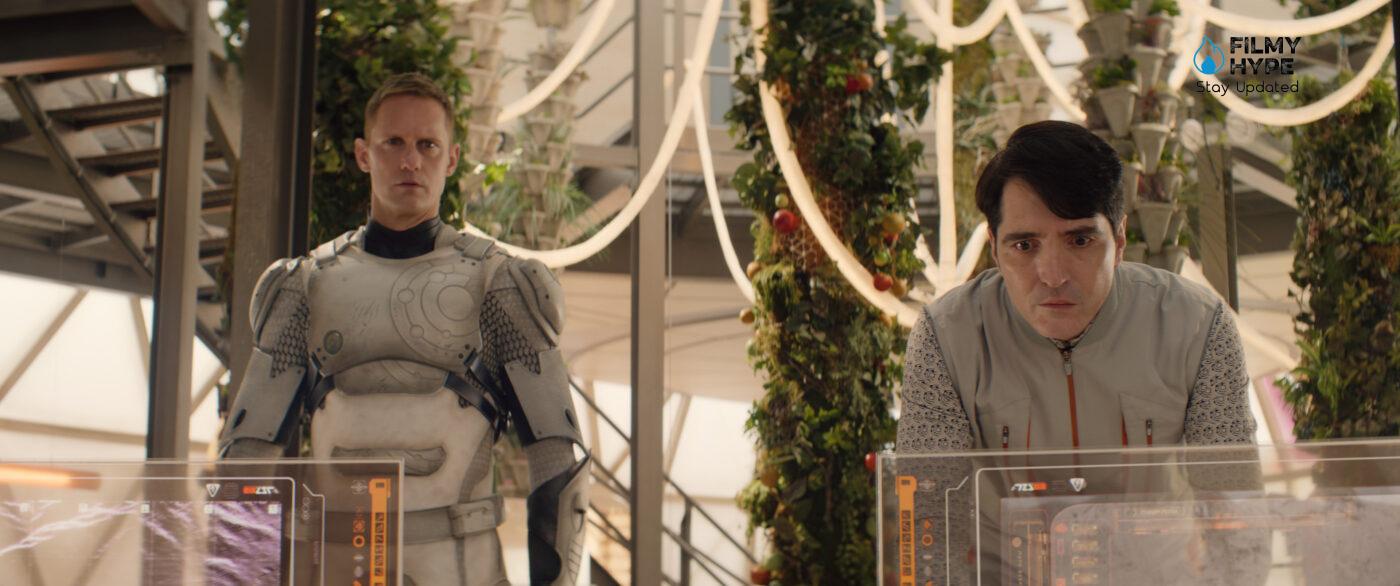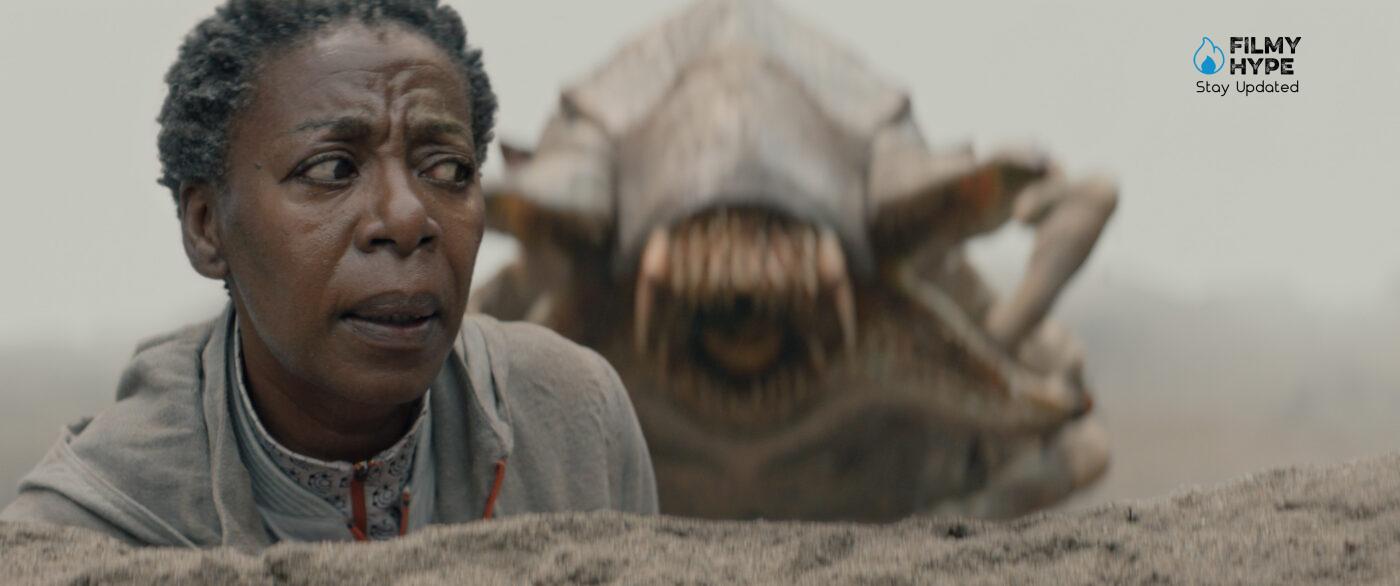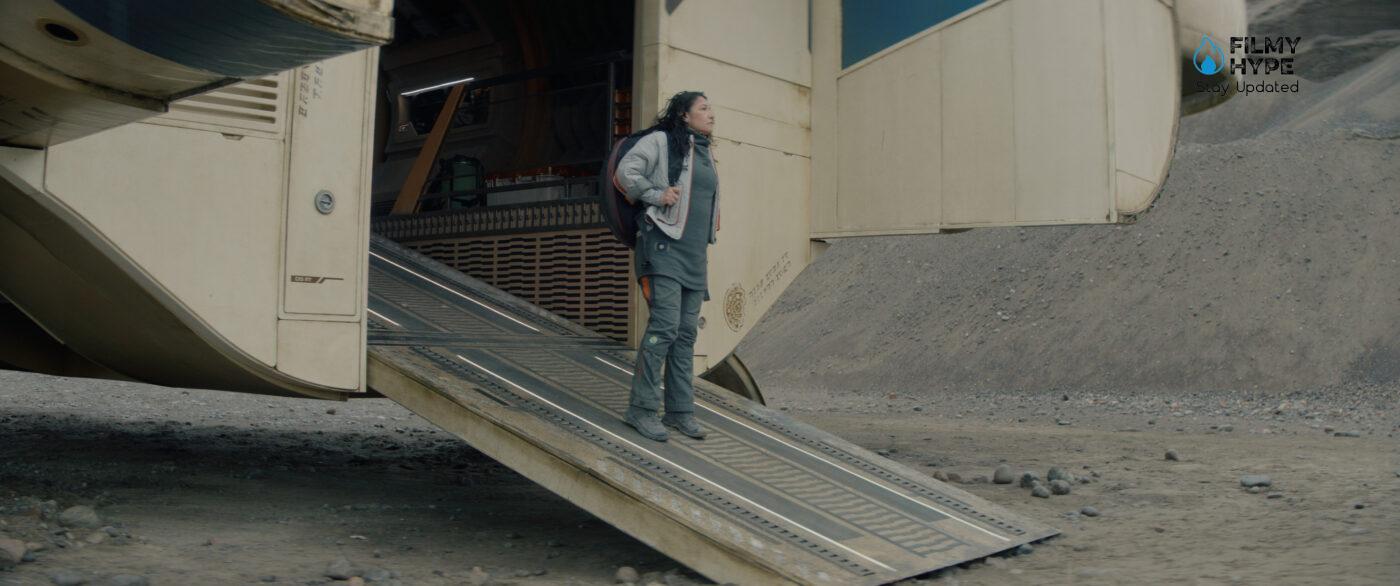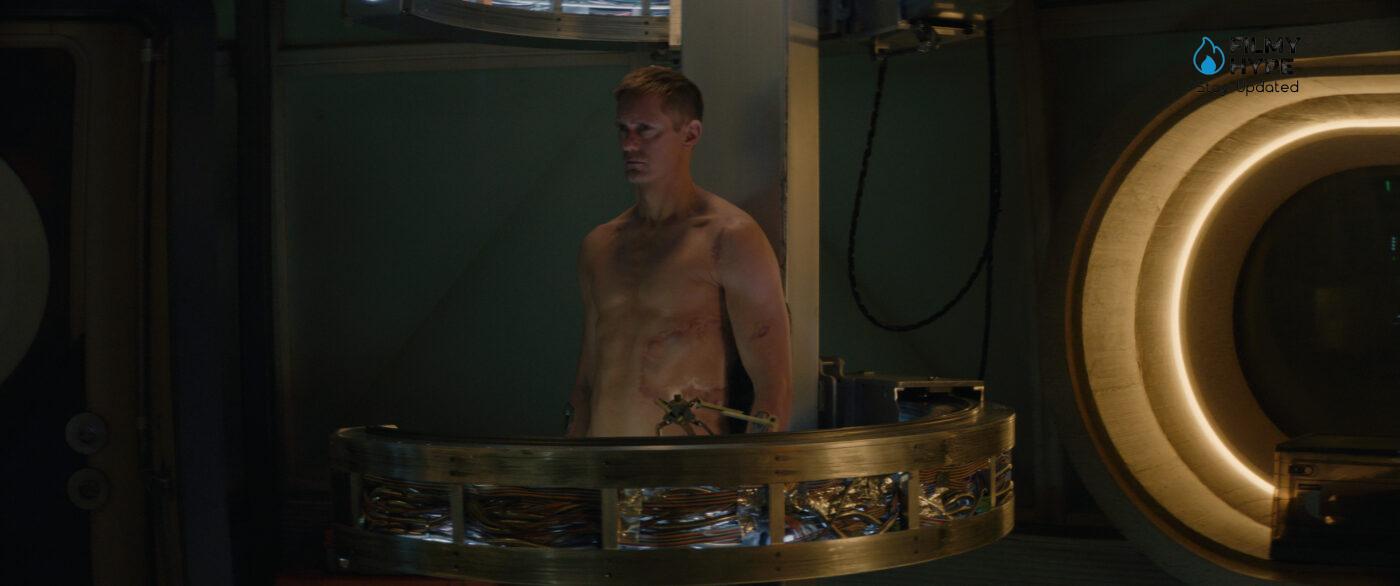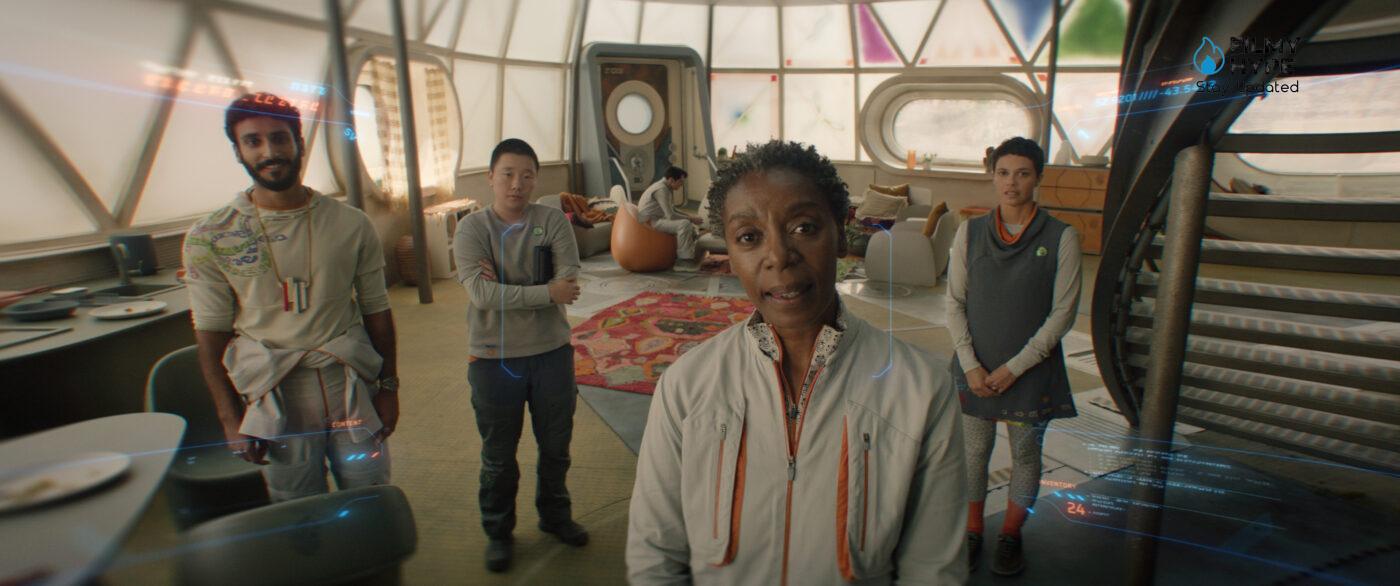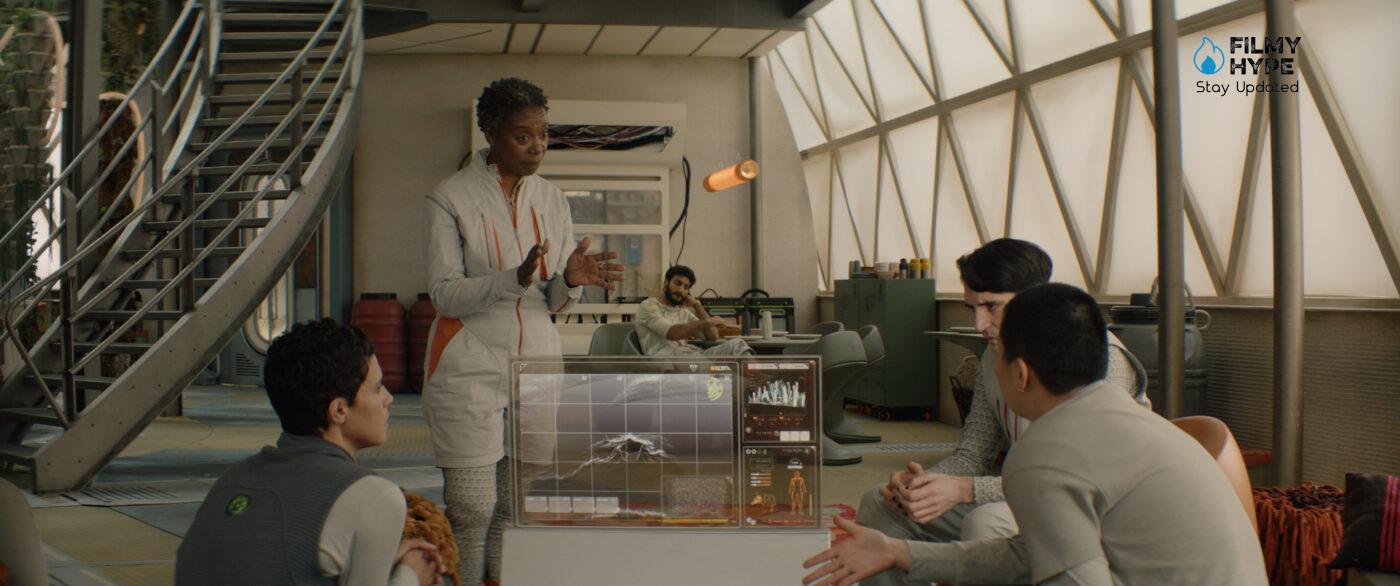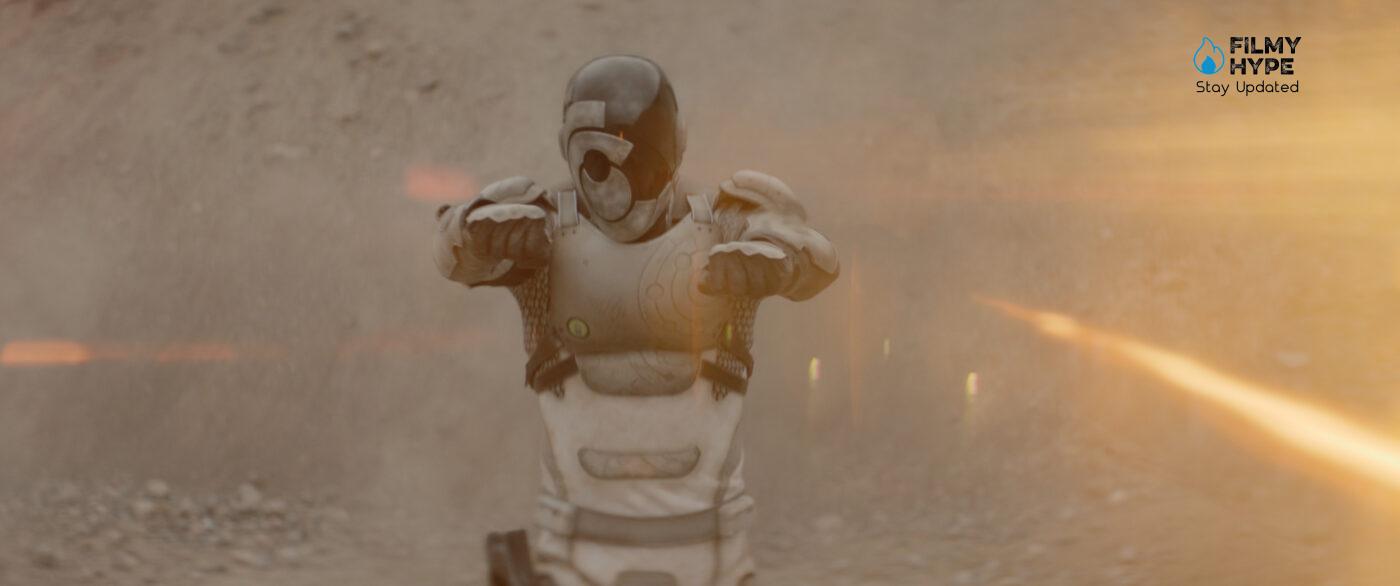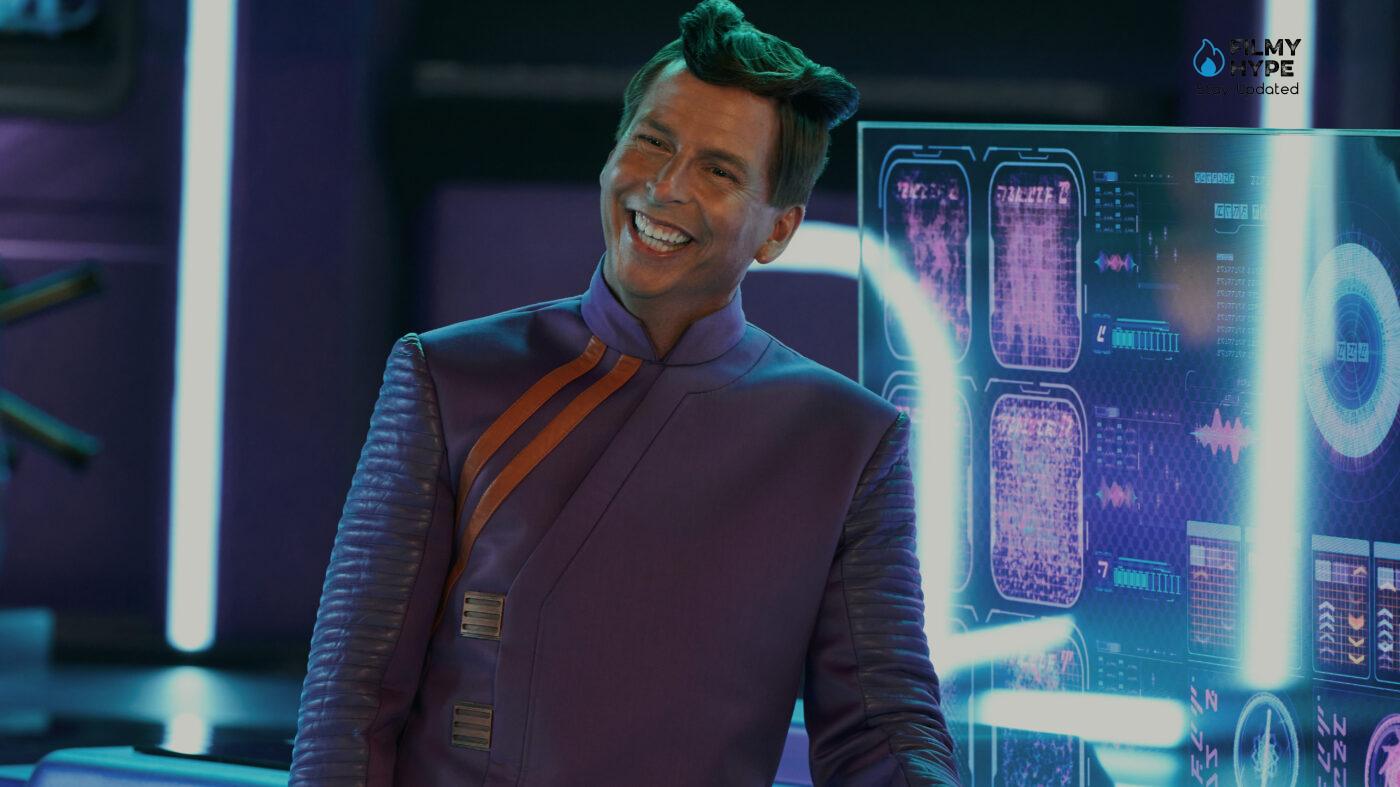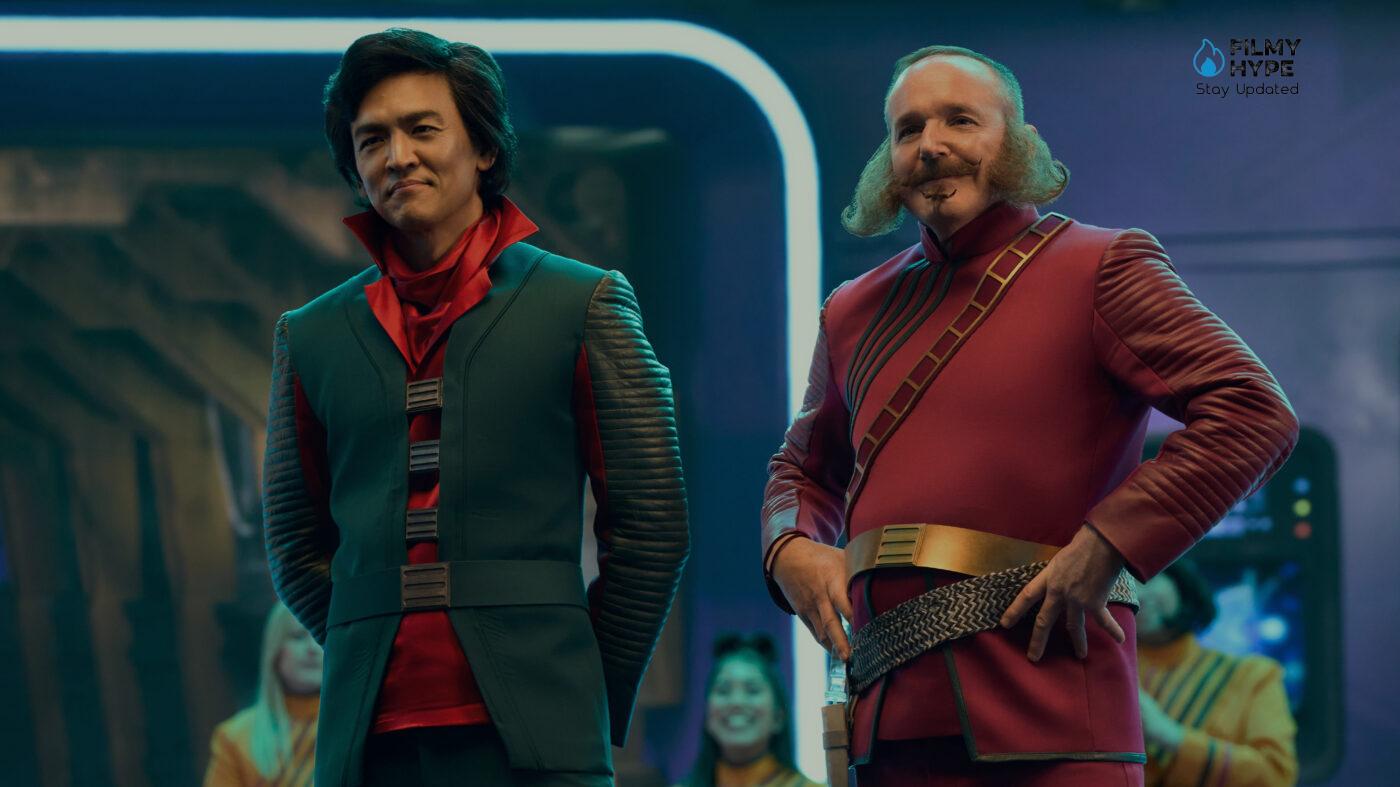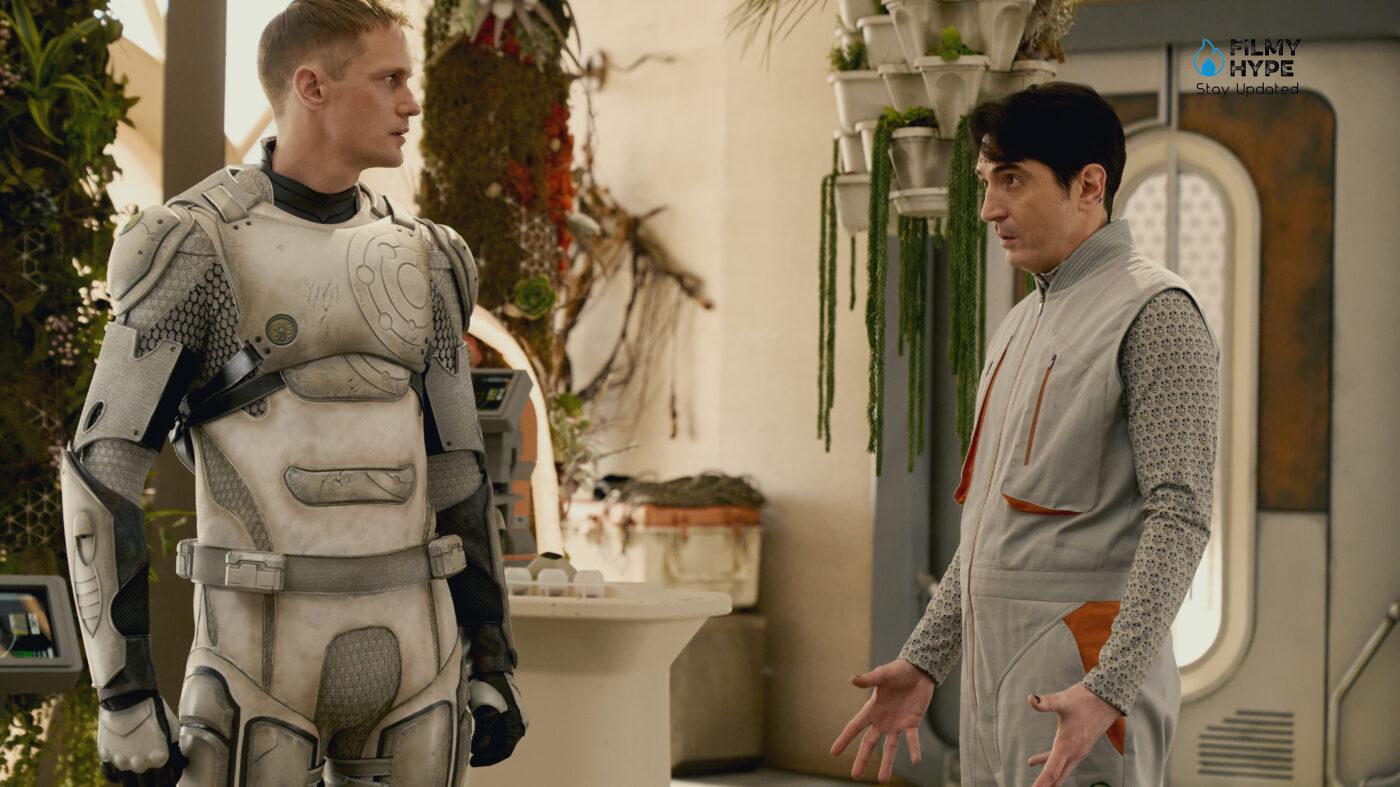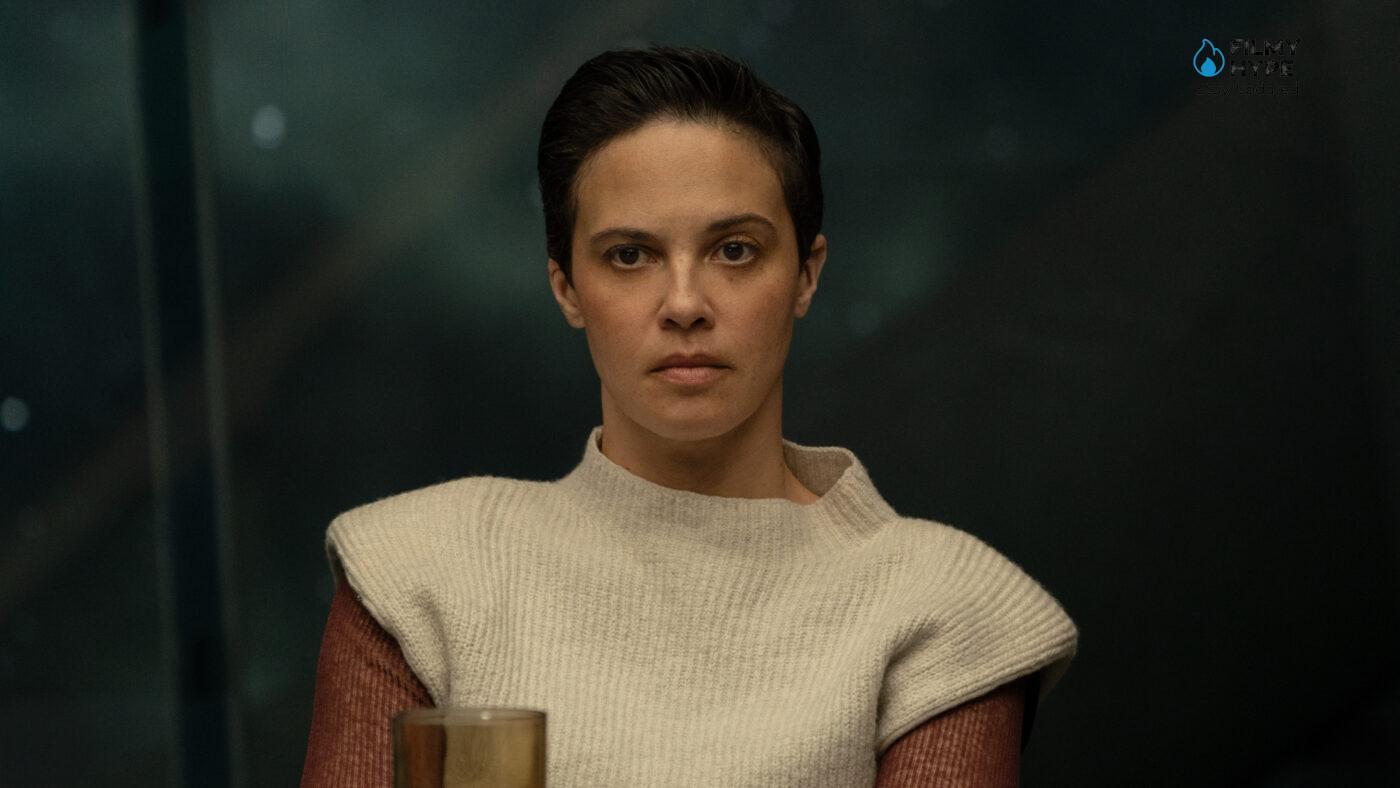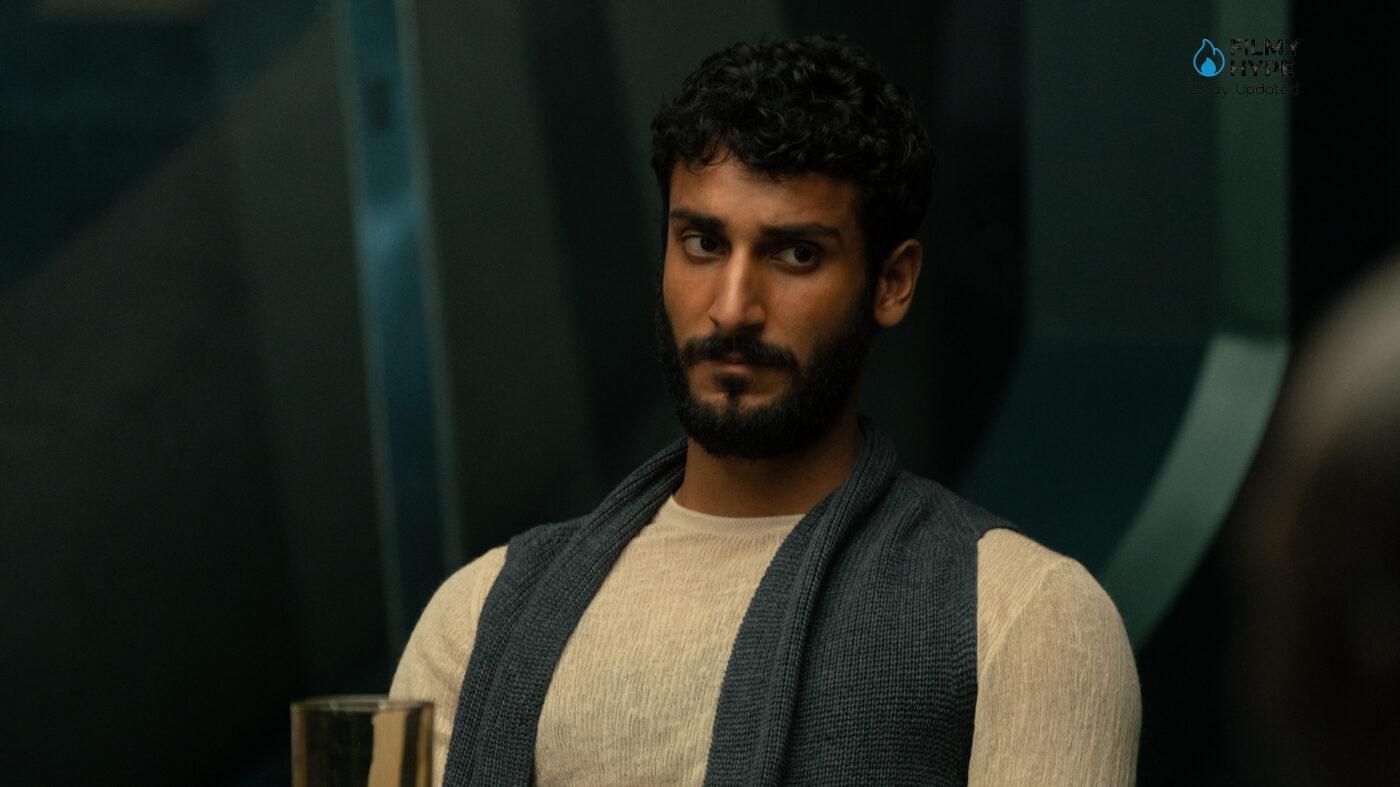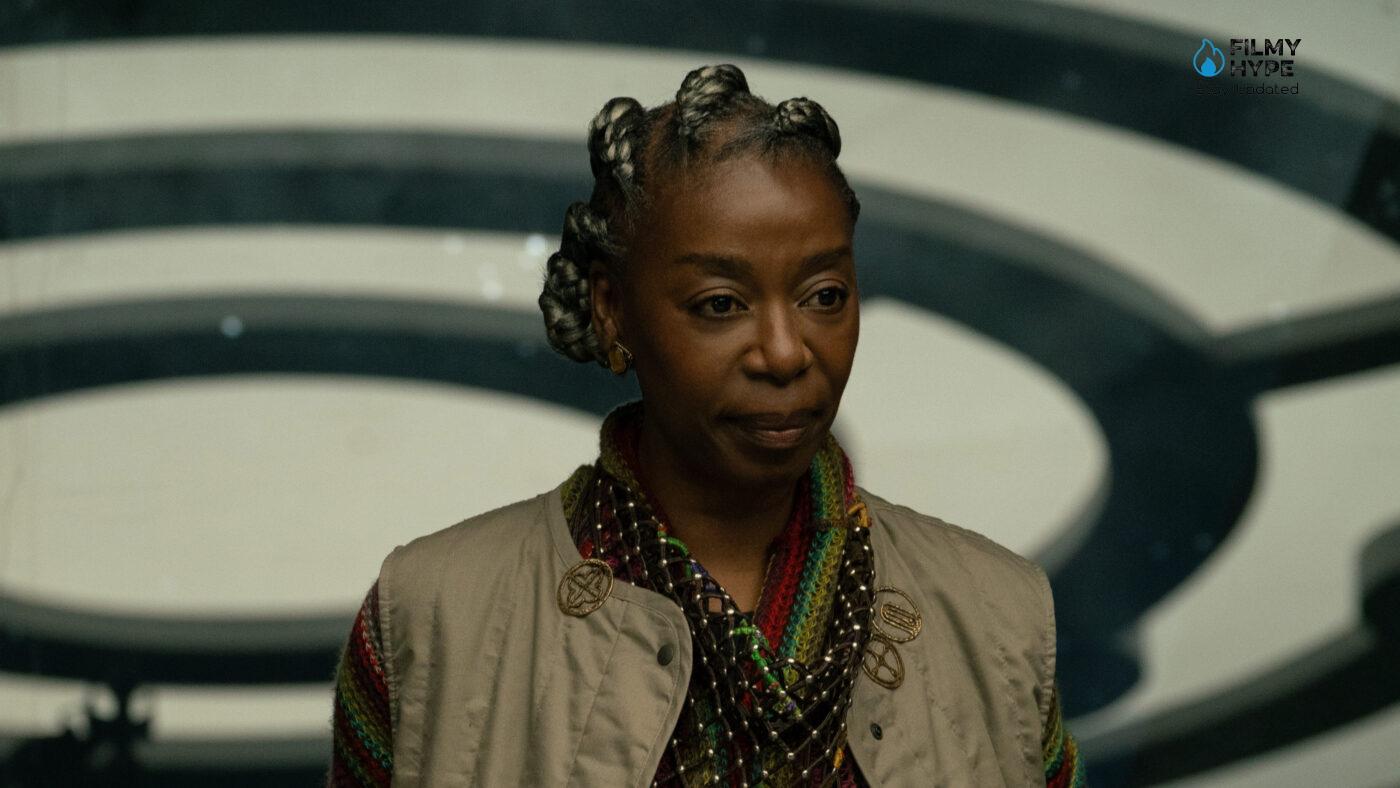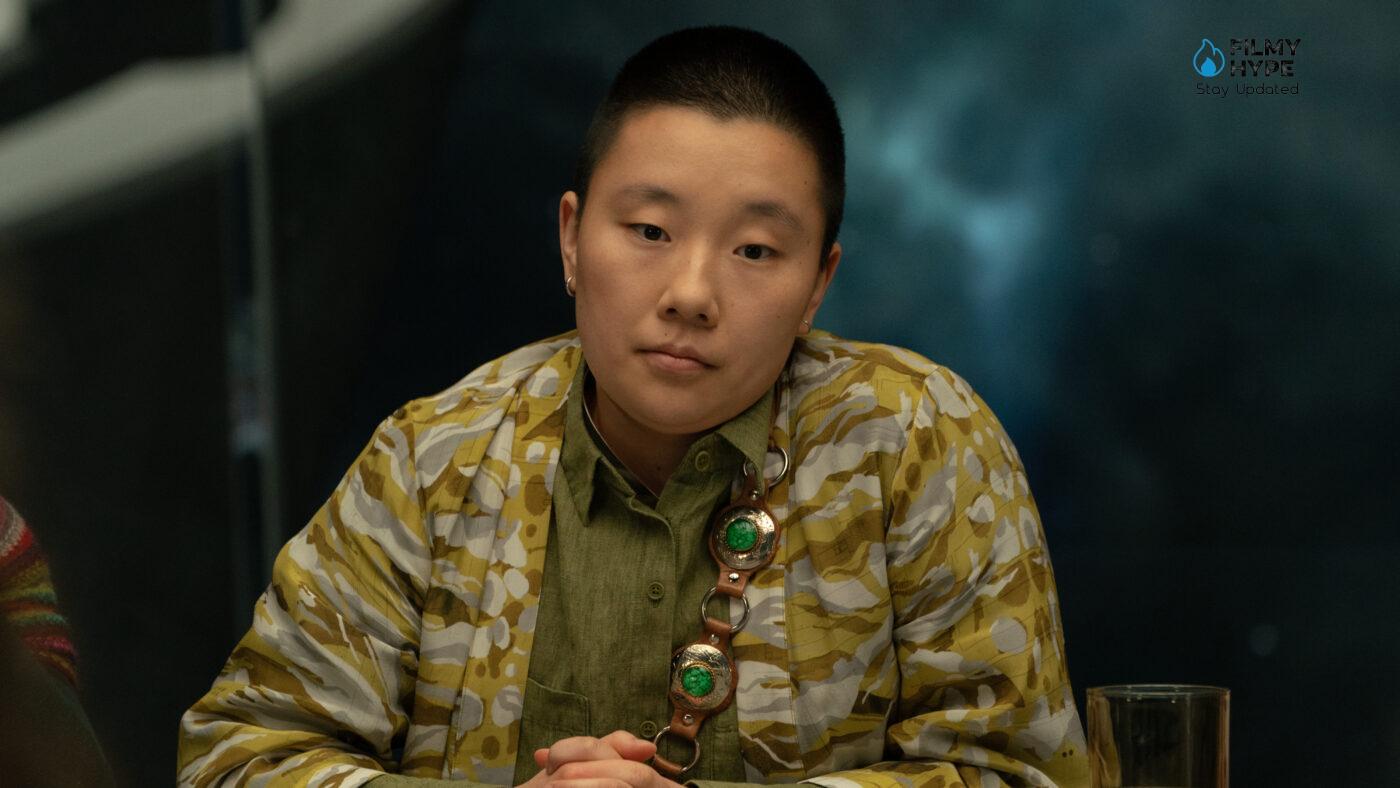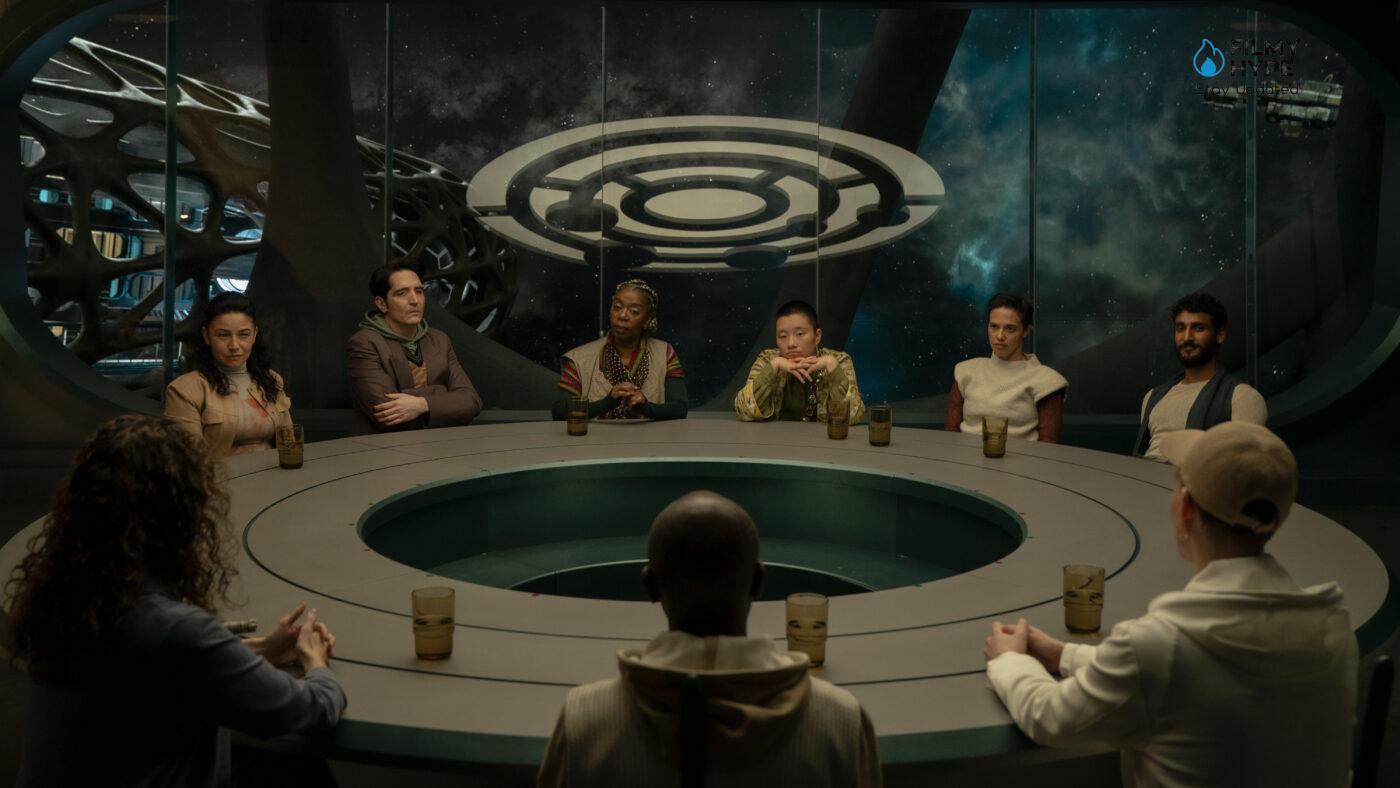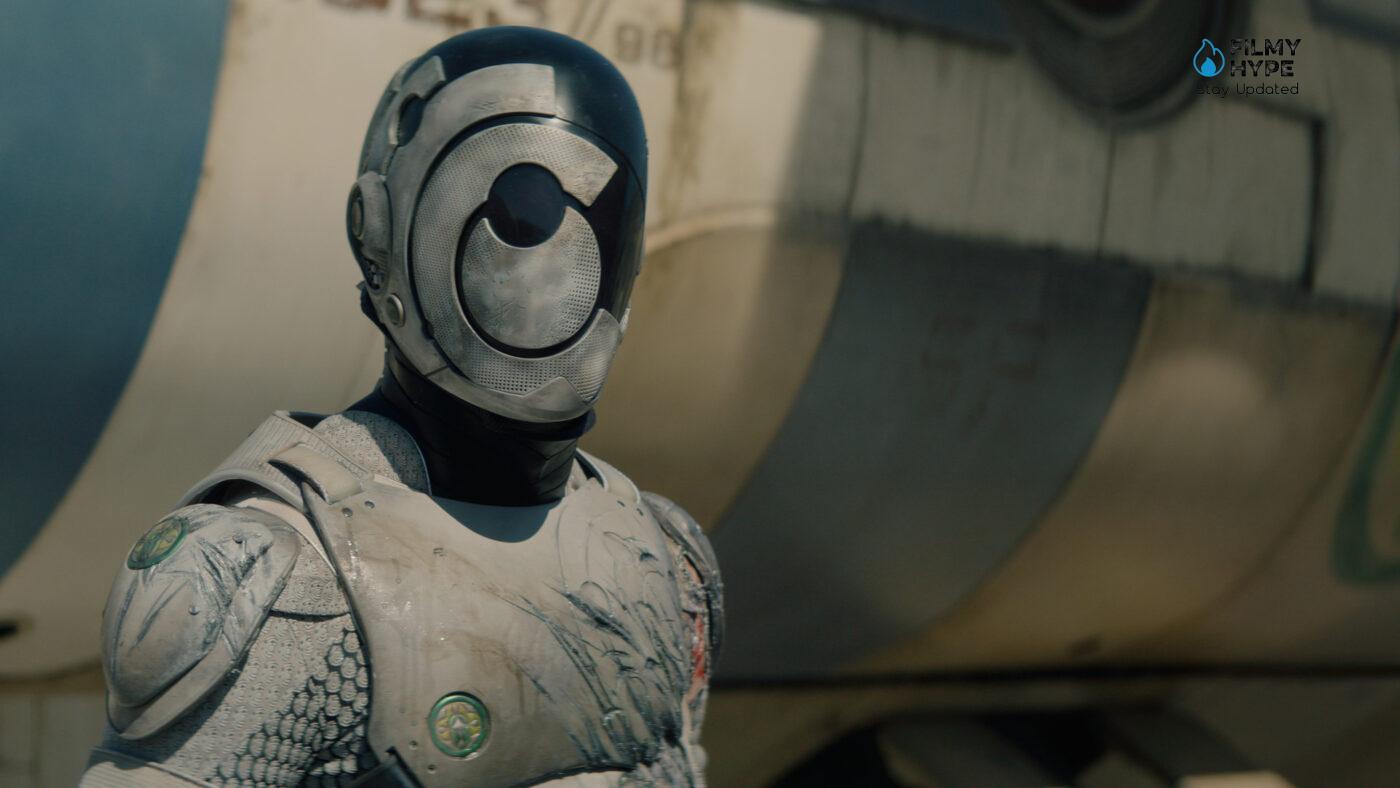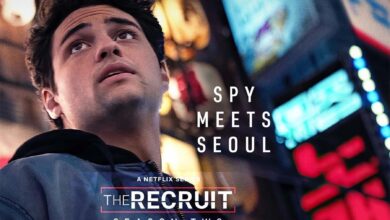Murderbot Series Review: The Android Who Hated Humans … and Loved Soap?
The May 16 on Apple TV+ the first two out of ten episodes come out (the others will come out one a week every Friday) of Murderbot, the TV series created by the brothers Chris and Paul Weitz (authors of American Pie, About a Boy is Mozart in the Jungle, among other things), taken from the first short novel All Systems Red (Red alert) of the series of novels and short stories The Murderbot Diaries written by Martha Wells and translated into Italian as The diaries of the killing machine. Compared to the starting literary material, in which the prevailing genre is science fiction, the series accentuates the comedy tone. In part the thriller atmosphere, but the protagonist of the story, as well as the narrator of this diary, remains the strange robot, or rather cyborg, which gives the title to the series and which is played by the Swedish actor Alexander Skarsgård, known for Big Little Lies, True Blood and various other titles.
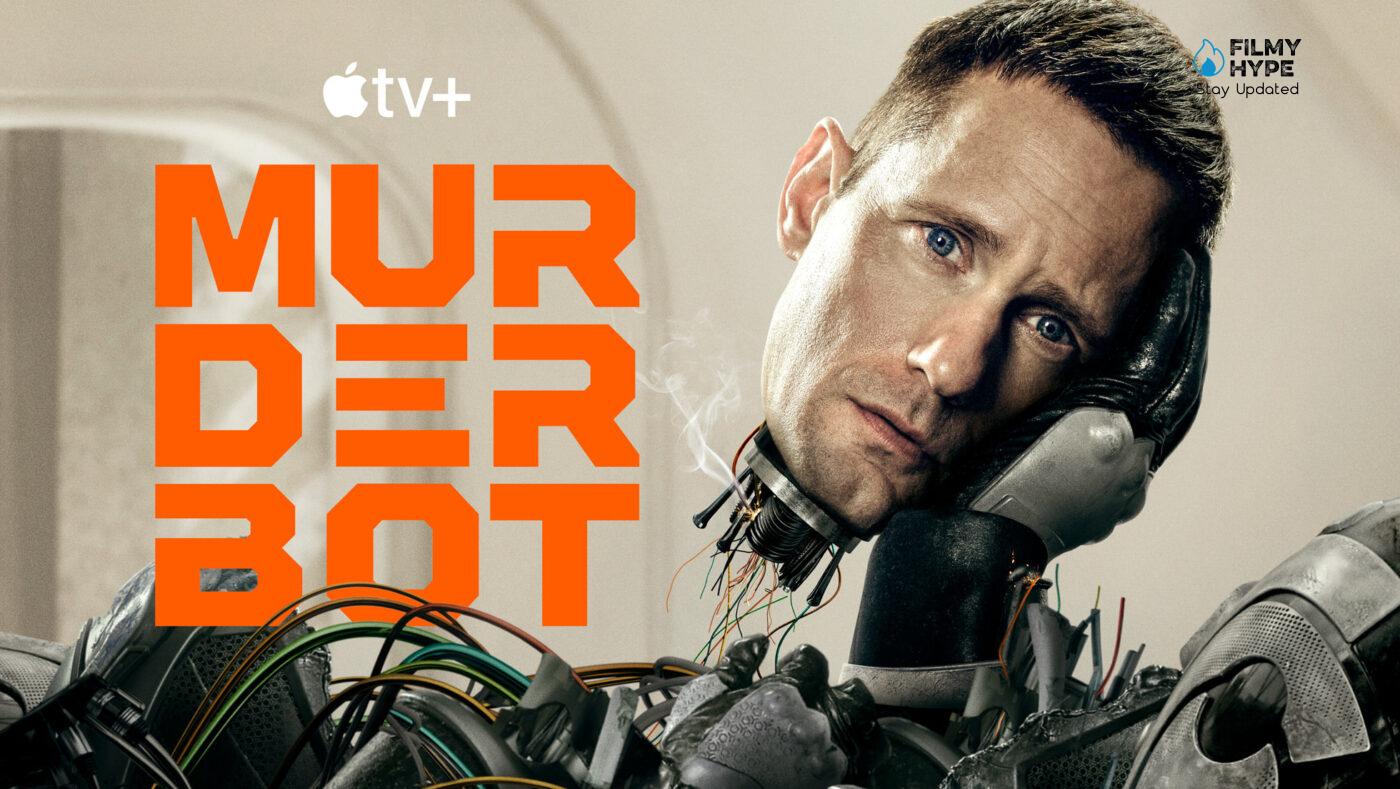
If what we have said so far has intrigued you, you can go directly to the trailer at the bottom, but if you want to fully enjoy this fantasy comedy series (on a platform that in the sci-fi genre can boast titles such as Foundation, Silo, For All Mankind and not only) and you have not read the books on which it is based, we advise you to read our Murderbot review, without spoilers but with some necessary explanation. Artificial intelligence is a thorny and deeply current topic, especially in the artistic field. In short, what we take care of, and which concerns us on the front line. What happens if a story, however, instead of being narrated from the perspective of the humanity involved, is developed through that of the android? Again, the productions Apple Originals stand out for their originality and innovation grafted on classic genres, as in this case. Specifically, one of Apple TV’s favorite narrative terrains: science fiction.
Murderbot Series Review: The Story Plot
History takes place in a remote future where, thanks to space travel through wormholes, humanity has colonized a multitude of planets and galaxies, and continues to do so between explorations and processes of terraforming to adapt new planets to human life. To manage, govern, and dominate all this, there are unscrupulous private companies, which enslave people and beyond. The largest of these entities is the Corporation, which has every necessary and mandatory means of carrying out exploration, research, mining, and other missions. Among the means that each mission must necessarily have there are also cyborgs, sentient robotic units equipped with very advanced artificial intelligence systems, made with metal parts and grafts of organic fabrics that reproduce the human features on the faces (but not on the genitals, as it is shown several times) and that perform multiple tasks, including combat for Combat Units and security for Security Units. And among the SecUnits of the Corporation, there is our protagonist, a model regenerated and in decommissioning after a bad accident, which we know on the last day of work with a mining company, while, unbeknownst to everyone, hacking its control to finally conquer full free will.
And with it the freedom to think that the humans he has known are all “balls” that he (or should we say it?) would like to kill so much that he decides that his new name is Murderbot. But since killing customers would easily expose him to a bath in the acid of some fatal tub of the Corporation, Murderbot decides to wait for better times by deceiving the wait with a feast of soap operas and science fiction series of doubtful taste from which he begins to learn to build the new personality, which obviously must keep secret. Unfortunately for Murderbot, you cannot even enjoy some healthy binge watching in the warehouses, because soon it is chosen, as a cheaper model, by a group of scientists who come from a planet not controlled by ruthless capitalist societies, a colony, a little hippie who also considers cyborgs as people.
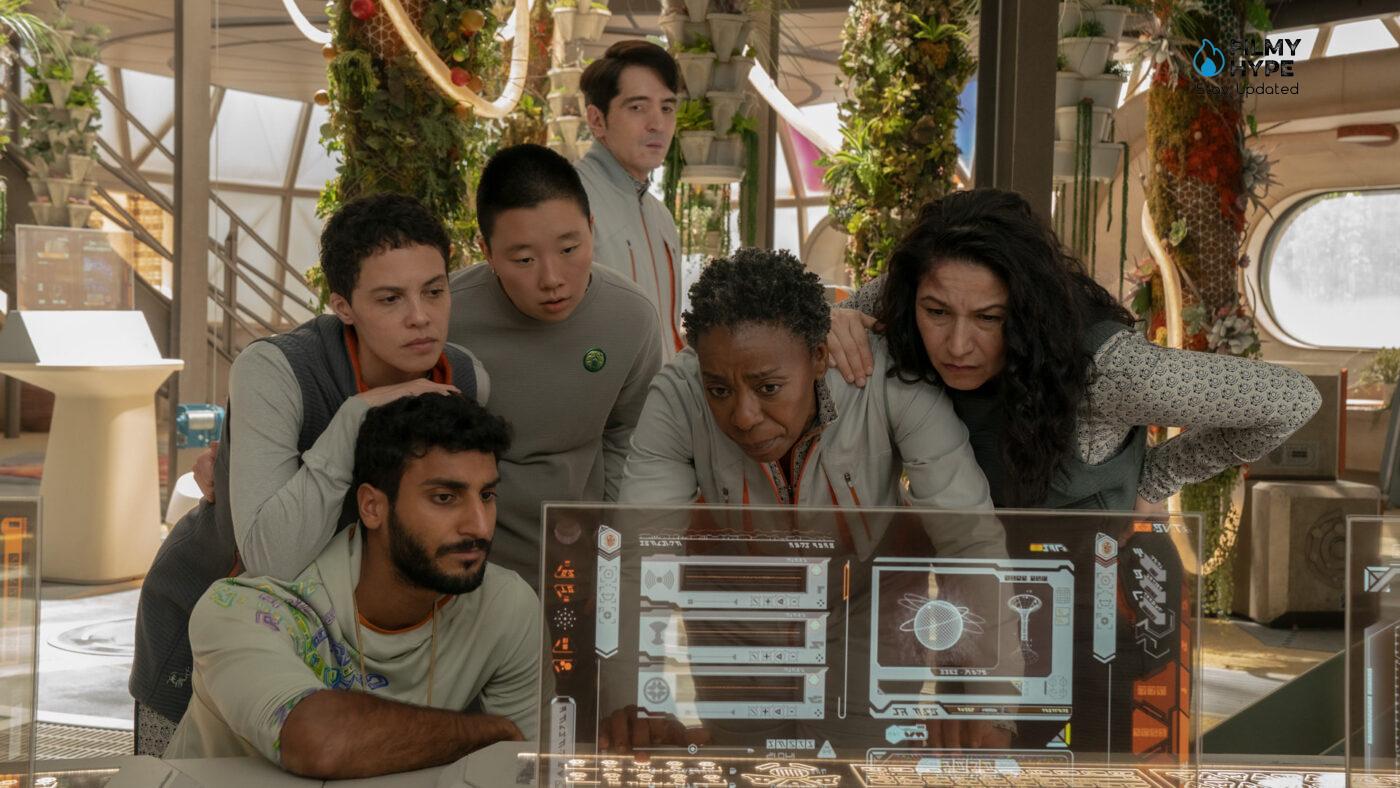
These galactic pacifists forcefully hire Murderbot for a research mission on a planet that could be colonized, and despite his worst starting intentions, Murderbot will have to admit to himself that these humans are far better than he has known before. Between mutual distrust, misunderstanding and various efforts, some link will be created between the cyborg and that group of people, but on the planet where Dr. Mensah and her team are on a mission they will have more urgent and dangerous things to deal with than a cyborg with murderous tendencies and poor television taste, like Dune-style ravenous worms and inhuman villains in every sense. We don’t say more, but if you pay attention to the initial animated acronym, you could catch some more details on the plot. And now let’s move on to our judgment on this series.
Murderbot Series Review and Analysis
Among the positive aspects of this series, there is certainly the setting, which was directed by set designers and special effects workers who have made it very suggestive and accurate. In short, from the point of view of science fiction, everything is fine. Also the interpretation of Alexander Skarsgård (son of art of Stellan and brother of colleagues Bill, Gustaf and Valter) is among the qualities of this series, precisely because of the alienating effect that it gives, even with its accent in the original version, to a cyborg unable to hold a human gaze but capable of killing someone (or something) with the same tranquility with which he looks at an episode of a series. The rest of the cast is less brilliant: apart from Noma Dumezweni’s maternal Mensah and David Dastmalchian’s wary Gurathin, the others are little more than specks, some even less. Nevertheless, Murderbot is a fun TV series that tells a pretty engaging story. But if we consider that the episodes last almost all significantly less than 25 minutes and that, apart from the first two, they will come out one a week, the advice we would like to give is to wait for the whole season to come out or at least most before look at it all in a row in a couple of evenings (or even in one evening, if you have three abundant hours).
Otherwise, the risk (as we wrote already in unsuspected times in defense of binge watching) is to waste more time reviewing what had happened in the twenty minutes seen a week before watching the new episode coming out. In addition to this effort, in our opinion, Murderbot also requires a preparatory commitment before viewing. Not having read the books from which the series is taken, the first episode overwhelmed us a bit, and only after recovering some information did we manage to tune in to the world represented by Murderbot. The introduction we wrote at the beginning of the summary of the plot, therefore, seemed necessary to facilitate the use of this series, but perhaps this means that, in terms of writing, Murderbot has some flaws. This does not entirely affect the quality of this series, but certainly limits its accessibility. Skarsgård dominates the scene thanks to a sarcastic internal narrator tone, perpetually annoyed by human stupidity. His voiceover is the comic heart of the series, and shines especially in episode 4, where Murderbot believes he is the protagonist of a space sitcom. However, the 25-minute format per episode, distributed weekly, penalizes the pace. The first episodes struggle to mesh, and the plot takes too long to find a clear direction, giving the impression of an undecided product between comedy, satire, and sci-fi adventure.
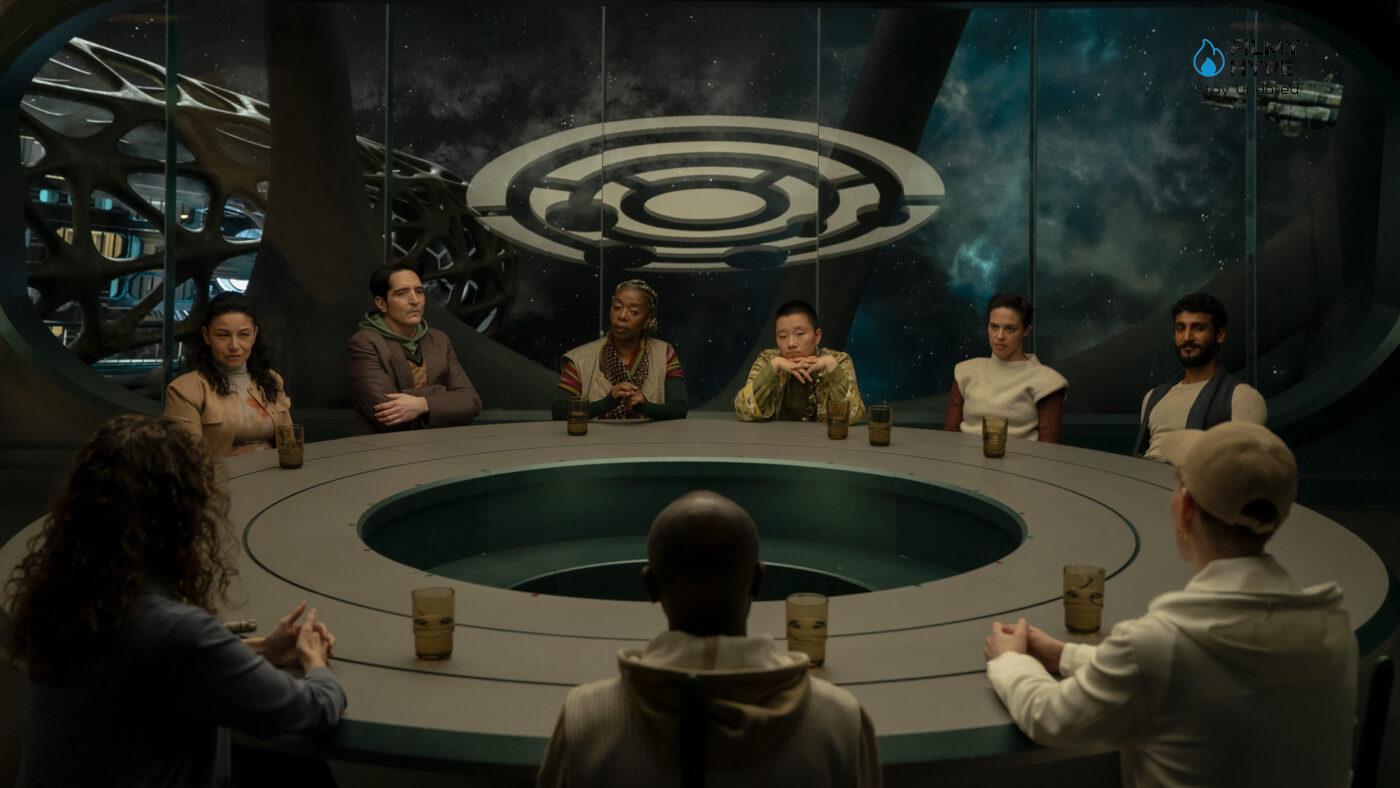
Despite irony and cynical jokes, Murderbot raises classic but always current questions: What does it mean to be human? Is a robot capable of choosing not to kill, or a human being who cannot conceive the freedom of others, more ethical? The protagonist wonders–or rather, observes with silent contempt a contradictory humanity, incapable of consistency, yet capable of empathy. The series manages to bring out these themes in a subtle way, although it rarely really deepens them. Murderbot seems to suffer from the same dilemma as his protagonist: he wants to be something, but he doesn’t know what. It is not a sitcom, it is not a sci-fi drama, and it is not entirely a parody. The comedy, based almost exclusively on the contrast between the cynicism of the protagonist and the naivety of the group, soon ends. In addition, many supporting actors are underdeveloped and used as comic shoulders for gags that don’t always work. When history finally takes shape with the discovery of a massacred scientific base, it is now too late to invest emotionally.
The real stroke of genius of the series is the insertion of the fictitious space soap The Rise and Fall of Sanctuary Moon, viscerally loved by Murderbot and used as a manual of human behavior. A series inside a series, with guest stars such as John Cho and Clark Gregg, which gives some of the most fun and alienating moments. It is in the relationship between Murderbot and his favorite fiction that the character acquires depth and tenderness, revealing himself as an emotionally stuck teenager who learns life from TV. Murderbot is a fascinating and frustrating series at the same time. It starts from a brilliant idea and an irresistible protagonist, but struggles to build a narrative around it. His reflections on free will, on loneliness, and the incomprehensibility of the human being are often only sketched out. It is not a masterpiece, but it is a pleasant and promising vision, especially if it can expand in a less shy and more centered second season.
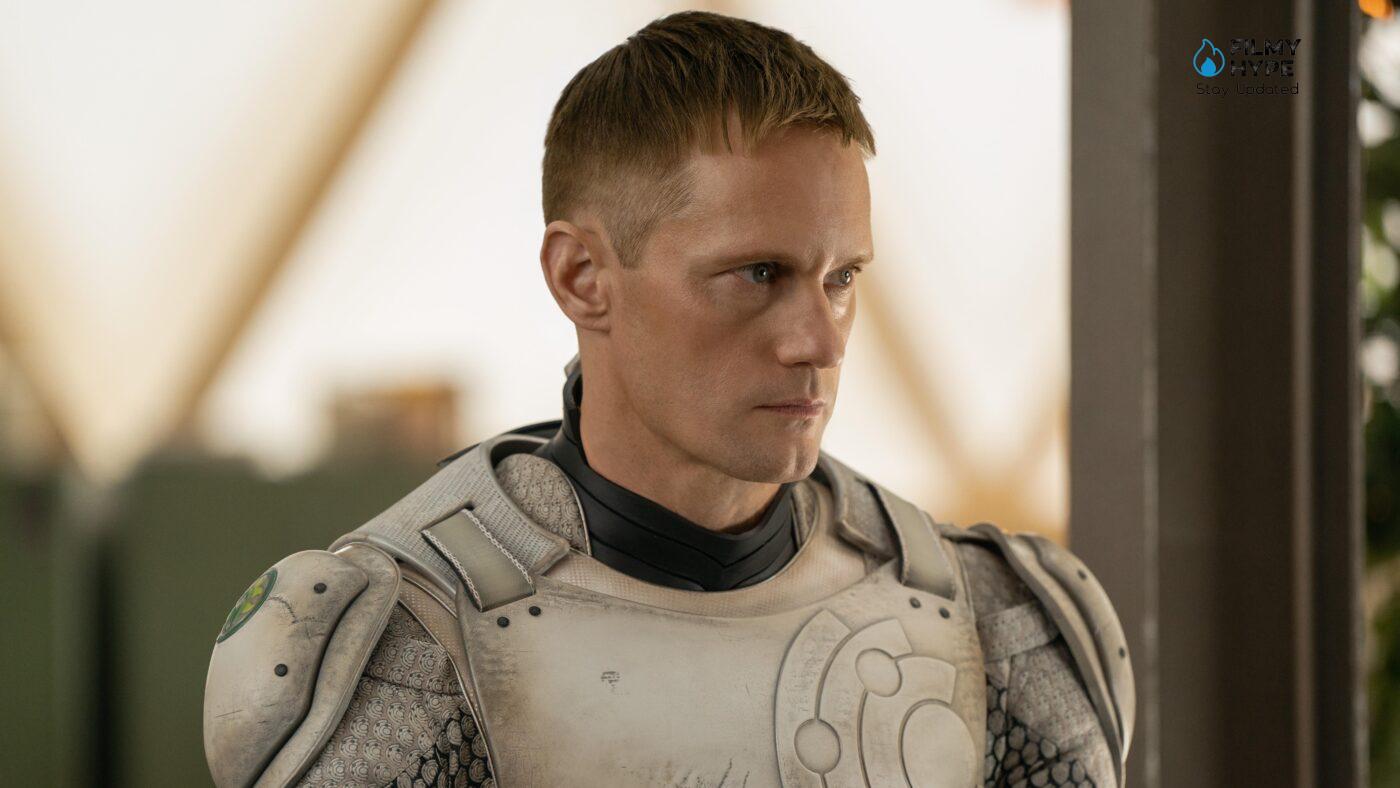
Science fiction more successful and that even the least accustomed viewers to the genre, we know, is that more human because it touches much more emotional than theoretical strings in their hearts. Murderbot succeeds in part in this sense because it proposes a story that moves halfway between drama and comedy, not always finding its way but offering many interesting food for thought. From 2001: A Space Odyssey to A.I. and _Westworld, there has always been there rebellion of the machines to dominate the stories about artificial intelligence, but perhaps another way of storytelling is possible. The main originality lies precisely in the point of view of AI and not of the humanity involved, constantly repeated to the public thanks to the voiceover of the protagonist, so that he can hear his thoughts. Despite being a robot. Or maybe just for that. Our Murderbot finds himself involved in a mysterious massacre on a remote planet.
The memory of that event haunts him exactly as a traumatic event would do with a very normal human being. It’s just that it’s an advanced robot … that guides us to discover a great series, a perfect mix of science fiction, humor, action (because you will also find that, and in abundance, in unexpected moments), and a great introspection. Yes, exactly: Murderbot is a humorous sci-fi series that talks about feelings. And it does it in a way intelligent and unusual: our android experiences feelings for the first time, confronts – again for the first time – with a group of humans that feelings do not repress them, on the contrary: it discusses and follows a series (or rather a soap) that feelings speaks in a, let’s say, futuristic way. For the record, there are well-known faces to fans of cinema and TV to interpret it.
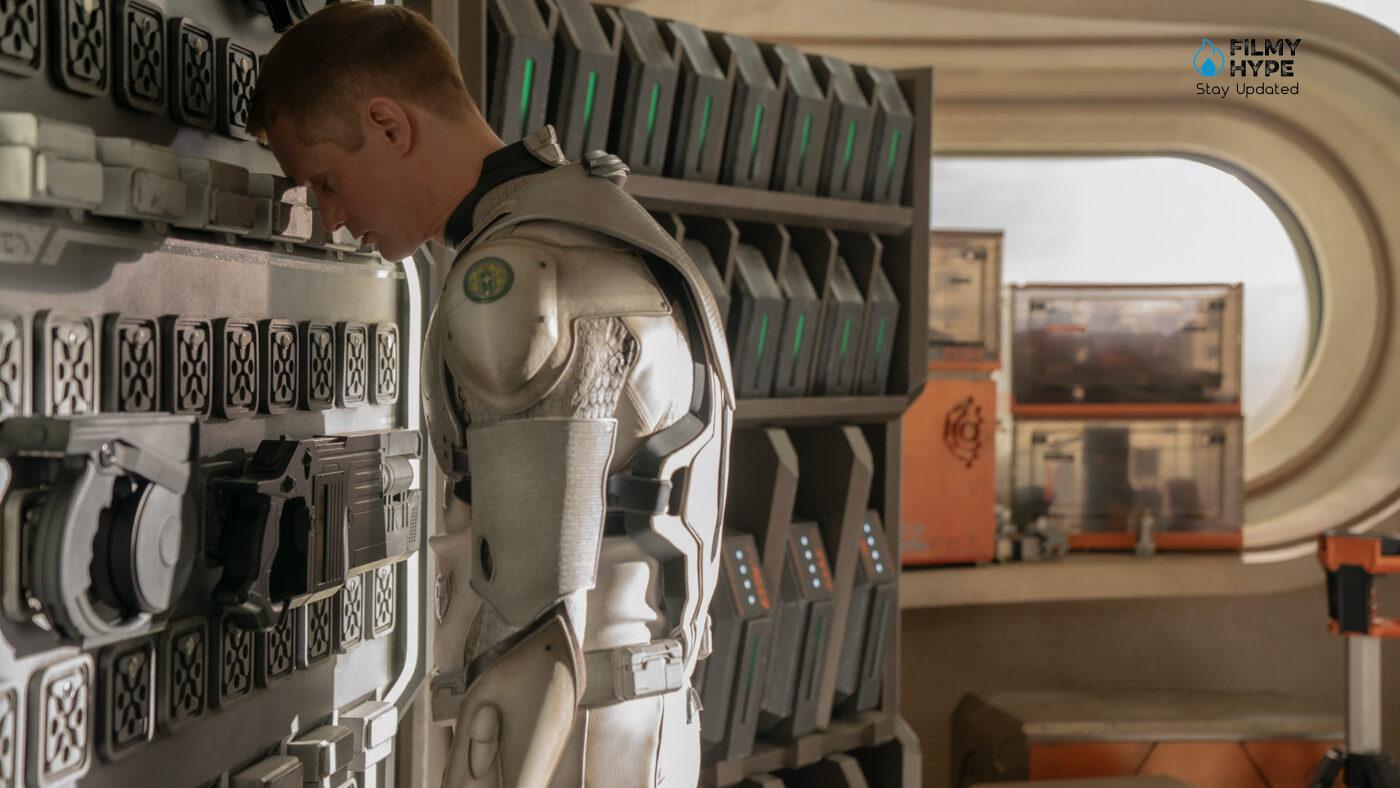
I have repeated several times how original Murderbot is, but be careful: it does not mean that it does not contain clichés of the genres it faces. Rather. He inserts them all, one by one, at the appropriate time, and then disassembles them. Decostruirli. Reorganize them in a new way. In a half-hour format that you will devour without even realizing it. Murderbot‘s sarcastic comments will not stop you from enjoying, but also make you reflect. And Murderbot‘s fear, perfectly represented by Alexander Skarsgård’s gaze, reminds us of how much we have been the most dangerous and destructive species on our planet … And we remain so also on other planets. Hostile aliens permitting, of course. Between fun and crucial reflections on the very essence of what “human being” represents, Murderbot will conquer you. Without ever giving in to the temptation of rhetoric.
Murderbot Series Review: The Last Words
Murderbot is a series that confirms the basic quality of Apple TV+ but fails to go too far, moving in newly beaten terrain but also a little uncertain. Excellent Alexander Skarsgård, who deliberately emerges from the semi-unknown outline cast, forming a good working group, in front of and behind the camera. The main merit of the show? The reflection on our different reactions and approaches to artificial intelligence and the point of view of narration, robotic rather than human, but without forgetting its emotional aspect, indeed. Murderbot, an Apple TV+ series taken from Martha Wells’ novels, tells the story of an android who, after obtaining free will, decides not to rebel but to isolate himself from mankind… and watch soap operas. Thanks to Alexander Skarsgård’s interpretation and ironic tone, the series amuses, but struggles to find a true identity. The short format and the episodic structure limit the development of the characters and the plot, leaving the impression of a partially wasted opportunity. Yet the potential is – especially if you focus more on satire and less on relational clumsiness.
Cast: Alexander Skarsgård, Noma Dumezweni, David Dastmalchian, Tamara Podemski, Tattiawna Jones, Sabrina Wu, Akshay Khann
Director: Chris and Paul Wei
Streaming Platform: Apple TV+
Filmyhype.com Ratings: 3.5/5 (three and a half stars)



